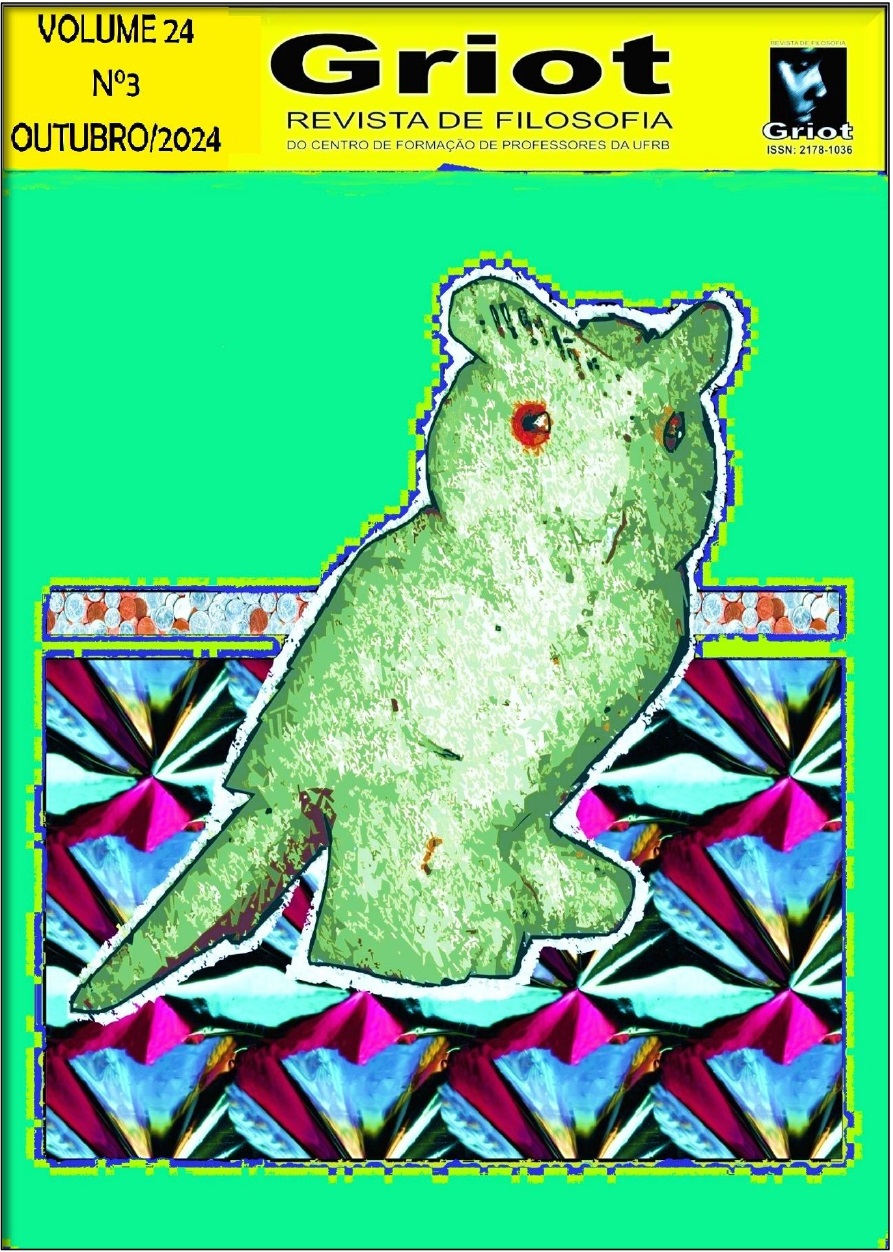Nietzsche on the dionysian and the human-nature connection
DOI:
https://doi.org/10.31977/grirfi.v24i3.4912Keywords:
Dionysian; Nature; Culture; Human; Art; Tragedy.Abstract
This article explores the interrelation between the Dionysian artistic impulse, human nature, and Greek culture in the early works of Friedrich Nietzsche (1844-1900). With a focus on the significance of the human-nature connection, it highlights the anthropological conception of ancient tragic thought and the recognition of the role of instincts in the production of tragic art. The Dionysian artistic impulse, linked by Nietzsche to the vital drive of creation and destruction, presents, in its celebration of the reconciliation between humans and nature, existential aspects fundamental to humanity that have been neglected by Western tradition. In its artistic dimension, the Dionysian is also expressed as an instinct, fostering a bodily and spiritual connection through which the tragic artist becomes a work of art. In its vital dimension, the Dionysian promotes the dissolution of individual subjectivity, returning one to their primordial nature and reconnection with animality. The denial of these artistic elements by the Socratic spirit led to the forgetting of human nature itself, resulting in the distortion of artistic creation and consequently, the decline of tragedy. In this context, Socrates' proposition of renouncing instinctual nature in favor of intellectual life is contrasted by Nietzsche, who, through the tragic perspective, argues that humans do not transcend their animal nature but remain subject to it, connected to animality. Thus, Nietzsche positions himself in the anthropological debate in opposition to the philosophical tradition initiated by Socrates.
Downloads
References
BARROS, Marcio Benchimol. Apolo e Dionisio: arte, filosofia e crítica da cultura no primeiro Nietzsche. 1999. 164 p. Dissertação (mestrado) - Universidade Estadual de Campinas, Instituto de Filosofia e Ciências Humanas, Campinas, SP.
DERRIDA, Jacques. Gramatologia. Tradução de Miriam Schnaiderman e Renato Janini Ribeiro. São Paulo: Perspectiva, 1973.
DERRIDA, Jacques. O animal que logo sou. Tradução Fábio Landa. São Paulo: Editora UNESP, 2002.
GIACOIA JÚNIOR, Oswaldo. Nietzsche. São Paulo: Publifolha, 2000.
GUERREIRO, Maria João Isidro. O homem e a sua animalidade: Considerações sobre a afirmação do instinto e da vida na filosofia de Nietzsche. 2012. 64 p. Dissertação (Mestrado) - Faculdade de Ciências Sociais e Humanas da Universidade Nova de Lisboa, Lisboa, Portugal.
MACHADO, Roberto. Nietzsche e a verdade. Rio de janeiro: Editora Rocco Ltda, 1984
MACHADO, Roberto. Arte, ciência, filosofia. In: MACHADO, Roberto. Nietzsche e a polêmica sobre o nascimento da tragédia. Zahar, 2005.
NIETZSCHE, Friedrich. A visão dionisíaca do mundo In: NIETZSCHE, Friedrich. A visão dionisíaca do mundo. Tradução de Maria Cristina dos Santos de Souza e Marcos Sinésio Pereira Fernandes, São Paulo: Martins Fontes, 2005.
NIETZSCHE, Friedrich. Ecce homo: como alguém se torna o que é. Trad. Paulo Cesar Souza. São Paulo: Companhia das Letras, 1995.
NIETZSCHE, Friedrich. O nascimento da tragédia ou Helenismo e Pessimismo. Tradução de J. Guinsburg. São Paulo: Companhia das Letras, 1992.
NIETZSCHE, Friedrich. Sócrates e a Tragédia. In: NIETZSCHE, Friedrich. A visão dionisíaca do mundo. Tradução de Maria Cristina dos Santos de Souza e Marcos Sinésio Pereira Fernandes, São Paulo: Martins Fontes, 2005.
SCHOPENHAUER, Arthur. O mundo como vontade e como representação. Tomo I. Tradução de Jair Barboza. São Paulo: Editora UNESP, 2005.
WEBER, Jose Fernandes. Arte, ciência e cultura nos primeiros escritos de Nietzsche. 2003. 123 p. Dissertação (mestrado) - Universidade Estadual de Campinas, Instituto de Filosofia e Ciências Humanas, Campinas, SP.
Downloads
Published
How to Cite
Issue
Section
License
Copyright (c) 2024 Matheus Becari Dias

This work is licensed under a Creative Commons Attribution 4.0 International License.
The authors who publish in Griot: Revista de Filosofia maintain the copyright and grant the magazine the right of first publication, with the work simultaneously licensed under the Creative Commons Attribution 4.0 International License, allowing sharing and adaptation, even for commercial purposes, with due recognition of authorship and initial publication in this journal. Read more...









































































